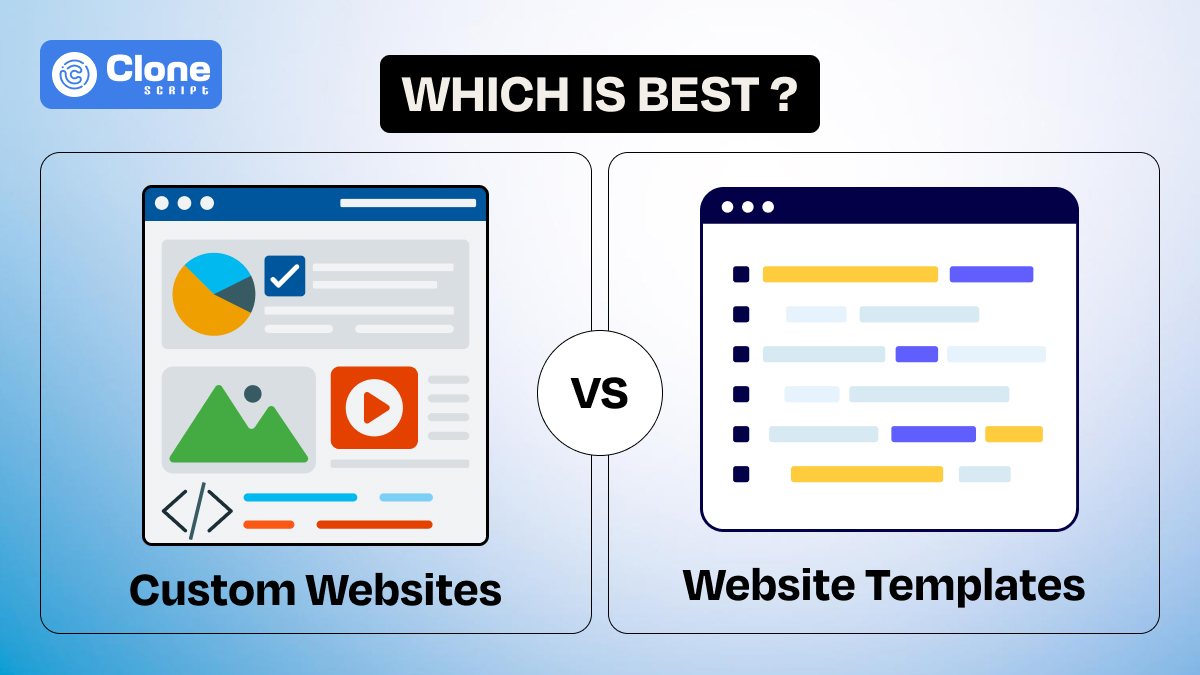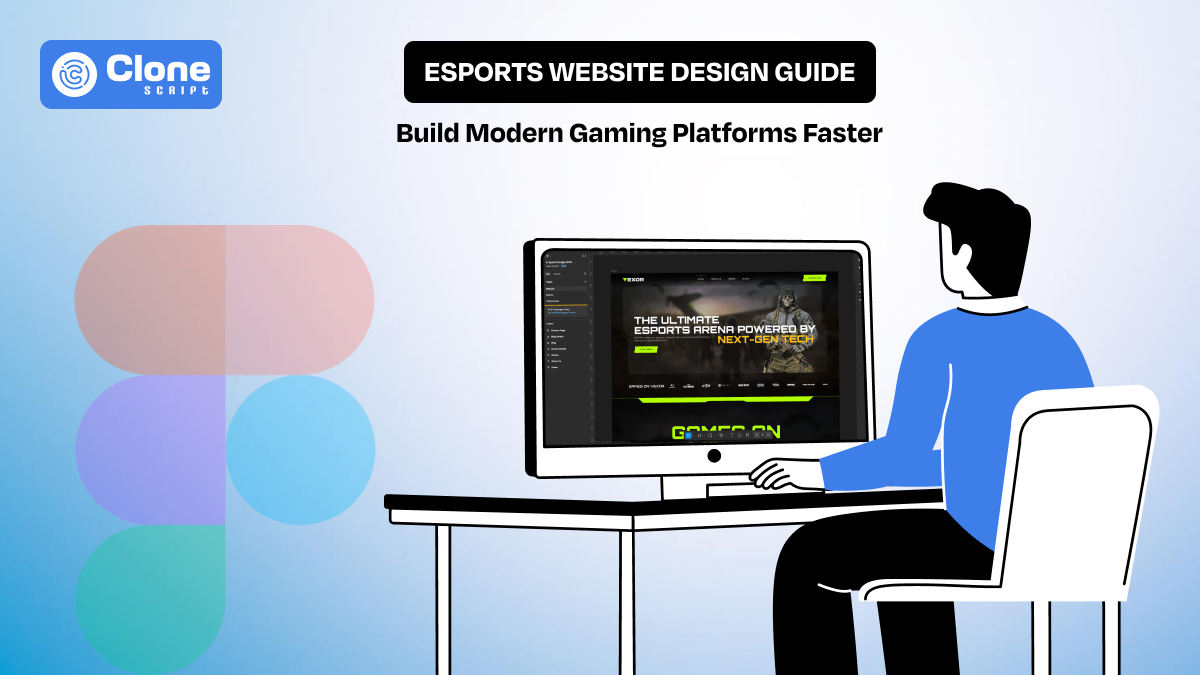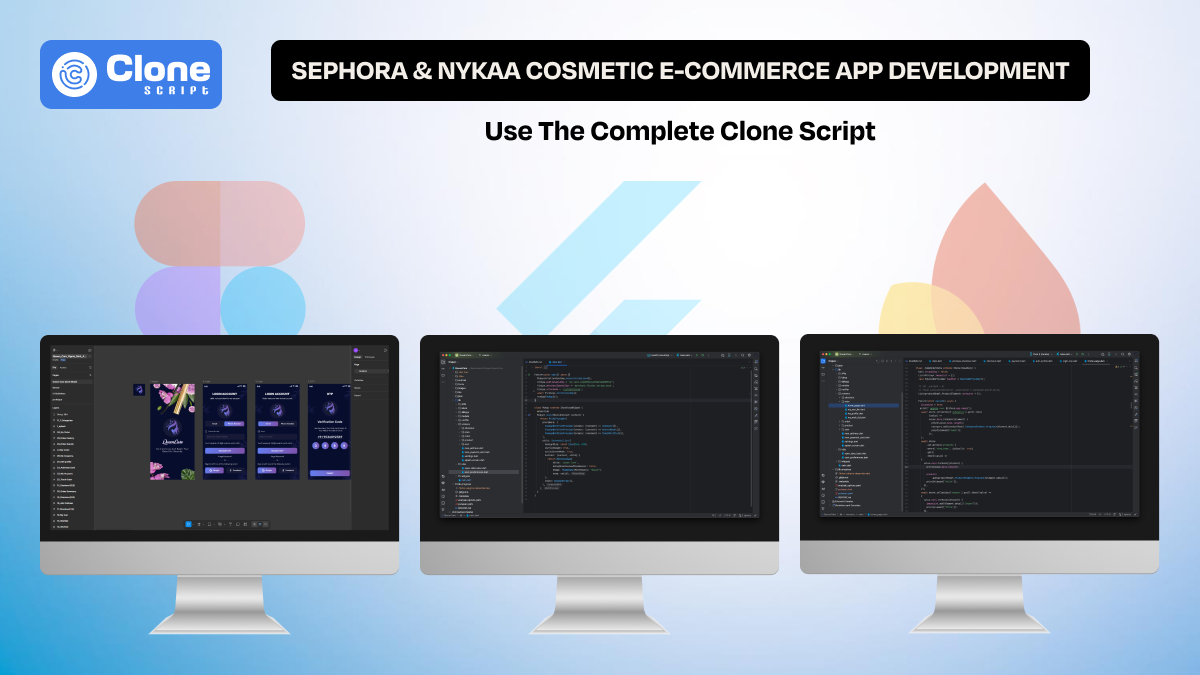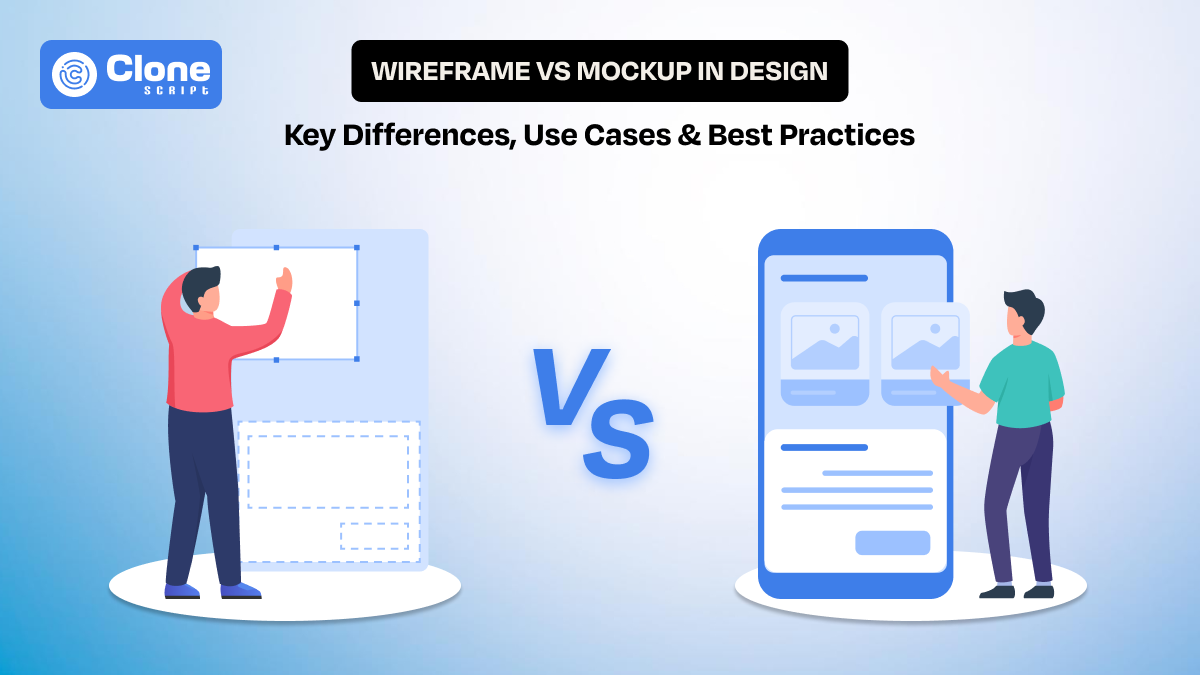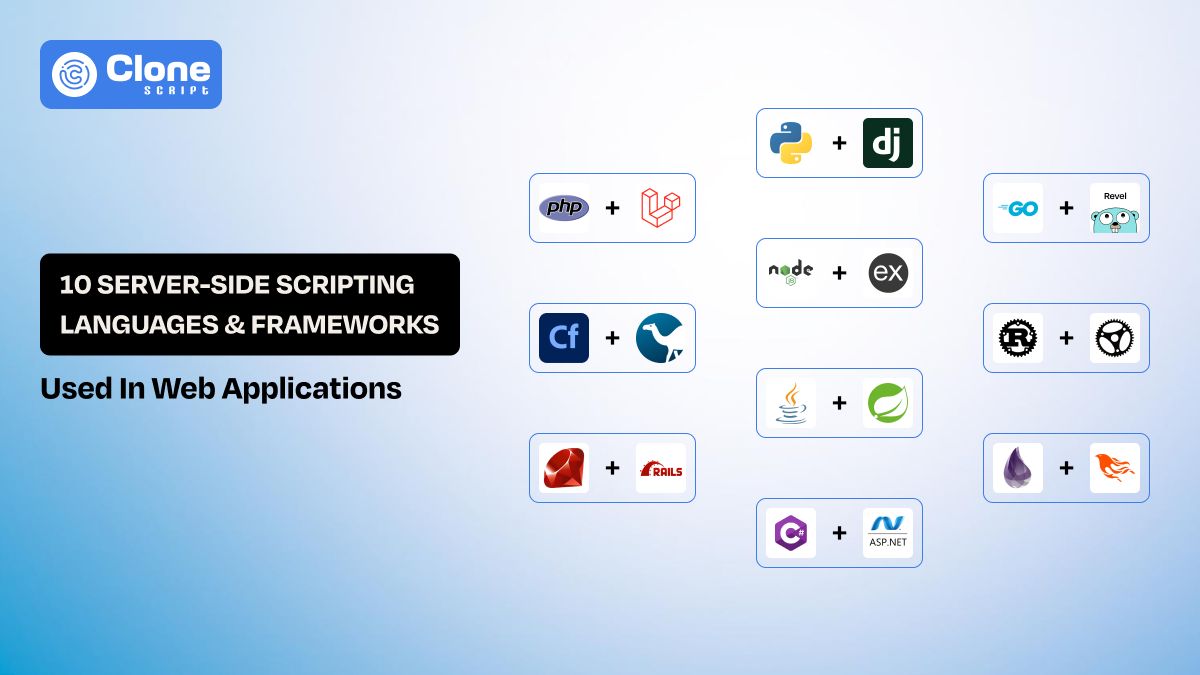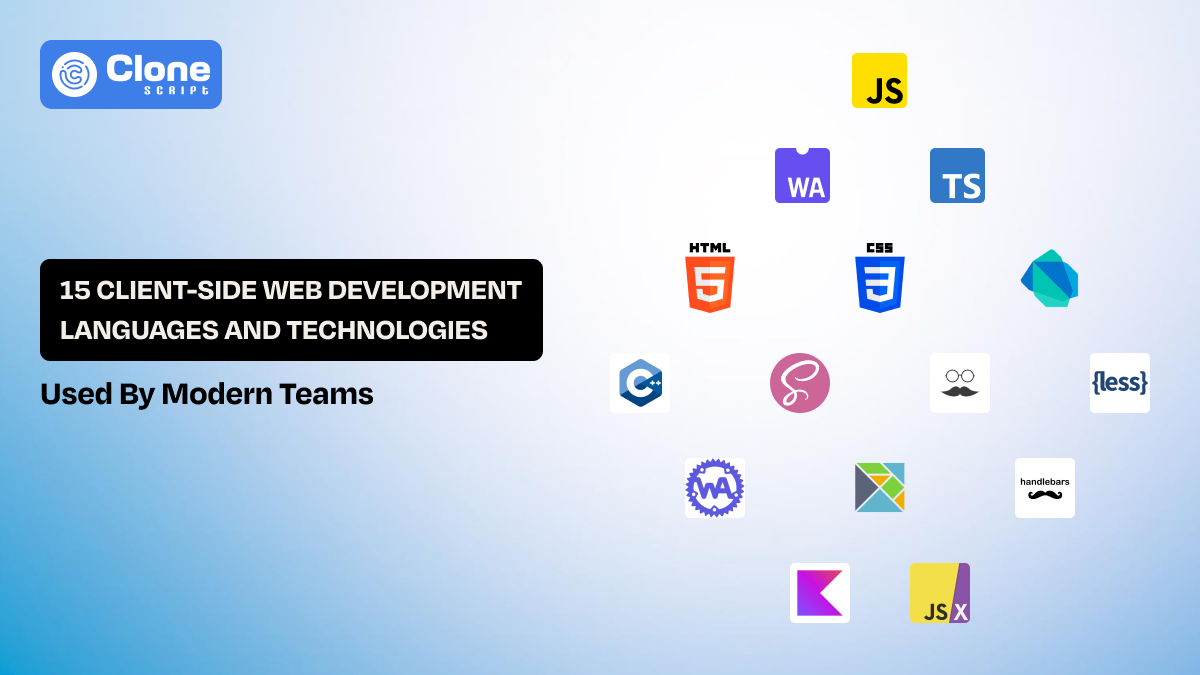Custom Websites vs. Template Websites: Which One is Perfect For You
Every business owner faces confusion about which one to choose for professional business website development: is custom website development a perfect fit or building a site from a website template can be helpful? If you’re just starting your business and need a clear difference between custom website design and template, then don’t worry. This article will clarify each important aspect and make you capable of making the proper decision.
Let’s understand what a custom website is and its advantages and disadvantages. Then we learn about website template definition with its own pros and cons.
What is a custom website?
-
A custom website is a unique online platform built from scratch to meet specific business needs and objectives.
-
Designed and developed with complete flexibility, it offers personalized design elements, tailored functionalities, and seamless scalability to adapt as the business evolves.
-
These websites provide brand uniqueness and incorporate advanced features. A custom website development often demands significant investment in time and resources.
After knowing the custom website you now have to know its advantages.
Advantages of Choosing Custom Website Over Templates
1. Unique and Personalized Design: A custom website confirms your online business stands out. Every design element—from color schemes to layouts is crafted to align with your brand’s personality and messaging. This uniqueness can leave a lasting impression on your audience.
2. Scalability and Flexibility: Custom websites are built to handle your online growing business. Need to integrate a new feature or expand your e-commerce capabilities? Custom development guarantees seamless scalability without compatibility concerns.
3. Enhanced Functionality: Unlike templates that might lack advanced features, custom website design allows for the integration of complex functionalities tailored to your operations. For example, payment gateway integration for crypto e-commerce payments, voice-enabled search options, AI-driven product recommendations, virtual store tours, or advanced CRM integrations.
4. SEO Optimization: One of the best advantages of choosing a custom website development is embedding SEO best practices during the development phase. From optimized code to site speed and mobile responsiveness, these factors significantly improve search engine rankings.
Disadvantages of Custom Website Design
1. Higher Cost: Choosing a custom web design seems costly for a small business, especially those who just place their foot in the online market. For the advanced level of expertise needed, time, effort, and complicated functionality add heavy price tags.
2. Longer Development Time: Building a website from scratch is a thorough process from planning to successful deployment. It often takes weeks or months, depending on how complex your requirements are.
3. Ongoing Maintenance: As a custom website is developed with unique requirements and an advanced tech stack it requires regular updates and dedicated support. This can add additional costs over time.
What is a website template?
-
A website template is a pre-designed layout offered by platforms like WordPress, Wix, or Shopify. It enables quick and cost-effective website creation.
-
HTML templates are usually available with core functionality that is useful for search engine-friendly website development.
-
For dynamic and advanced development, cutting-edge frameworks like Bootstrap, Tailwind CSS, and React are good choices.
-
WordPress themes are worthwhile to install directly through WP admin and manage websites on this CMS platform. Between free and premium WordPress website themes, always prefer a premium one to get advanced features access.
-
With fixed structures and basic customization options, website templates suit businesses seeking rapid deployment without technical expertise. However, their scalability and uniqueness may be limited.
Key Advantages of Website Templates to Know
1. Cost-effective: Website templates are budget-friendly, making them ideal for small businesses and startups. Platforms like WordPress, ThemeForest, and Envanto Elements offer templates starting as low as $50. While template providers like All Clone Script offer complete and responsive templates at $95.
2. Quick Setup: Once you purchase the template, you can have your website up and running within days or even hours. With template documentation and tutorial videos, you can launch your website without any technical expertise.
3. User-friendly: Most templates are designed for ease of use, enabling non-technical users to customize their sites without needing a developer. This will be a great choice for entrepreneurs who don’t know website design and coding but have a vision to establish an online presence through a website.
4. Mobile Responsiveness: The majority of web traffic now originates from smartphones, so a mobile-friendly website is important. Responsive website templates adapt seamlessly to different screen sizes (desktops, tablets, and smartphones). It offers a consistent and optimal user experience across all devices and does not negatively impact website caching performance.
Key Disadvantages of Web Templates
1. Limited Customization: Using templates for website development has customization options, but they’re limited by the framework. This can skip creativity and prevent you from fully aligning your website with your brand’s identity.
2. Generic Appearance: Since templates are mass-produced, there’s a high chance other businesses use the same design, which can make your website look unoriginal. In the online market, a unique presence is everything that users feel amazed and in templates, you can’t get over it.
3. Potential SEO Limitations: Since the templates are made with the best SEO recommendations, some of them are not properly optimized. Issues like bloated code or lack of mobile optimization can negatively impact your search engine rankings.
4. Scalability Issues: Compared to custom development, web templates are not made with scalability in mind. As your business grows, a template website may struggle to accommodate new features or higher traffic volumes. This leads to a need for complete redevelopment from the start.
Decision-affecting factors to know for custom website and template
1. Budget Constraints: For startups and small businesses, templates offer a cost-effective entry point. However, if your budget allows for it, investing in a custom website could yield long-term benefits.
2. Business Goals and Objectives: If your goal is to create a unique brand identity or require advanced features such as e-commerce functionality, custom web development is the better choice. For basic informational sites such as personal blogs or investment portfolios going with templates is a good fit.
3. Timeframe for Launch: If you want to launch a website without taking hundreds of hours, templates will be the most suitable. At the same time, you truly shine from the competition's demands to invest time in custom websites.
4. Required Features and Functionality: First check your needs—do you need features like appointment booking, e-commerce integration, or API compatibility? Custom websites can deliver functionalities that templates often cannot. The accessibility of unique features will be yours if you buy premium website templates.
5. Importance of Brand Identity: A website is the digital face of your business and a custom website’s branding opportunities are invaluable to get the user’s attention.
Best Website Templates to Choose for Your Startup
Conclusion
Custom websites offer uniqueness, scalability, and tailored functionality, but they require a larger investment of time and money. Website templates, while cost-effective and quick to deploy, come with limitations in customization and scalability.
Choosing between a custom and template website depends on your business needs, goals, and resources. Assess your priorities carefully to make the right decision for your online presence.
Not sure which option suits your business? Consult with experienced web developers to discuss your goals and find the best solution tailored to your requirements. Remember, your website is a critical tool for business success—make it count! Contact us.
 BTC - Bitcoin
BTC - Bitcoin
 USDTERC20 - USDT ERC20
USDTERC20 - USDT ERC20
 ETH - Ethereum
ETH - Ethereum
 BNB - Binance
BNB - Binance
 BCH - Bitcoin Cash
BCH - Bitcoin Cash
 DOGE - Dogecoin
DOGE - Dogecoin
 TRX - TRON
TRX - TRON
 USDTTRC20 - USD TRC20
USDTTRC20 - USD TRC20
 LTC - LiteCoin
LTC - LiteCoin

